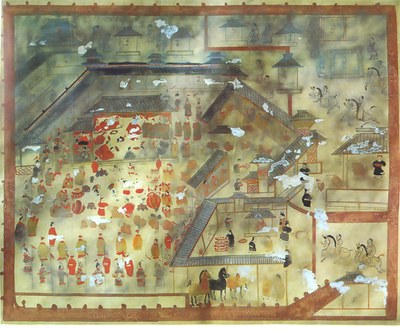
Ideas about the creation of wealth, social progress, poverty and exclusion are historically contingent in China and elsewhere. This project seeks to examine changing perceptions of wealth, profit, and poverty, and innovative efforts to overcome structural obstacles to wealth creation in early China.
Debates about the acquisition of wealth and the boundaries between moral values and material welfare can be traced back to the writings of China’s classical period. Warring States philosophers were uniformly agreed in their diagnosis of human nature as coveting profit and material wealth. Yet they all chose their individual style and metaphors to describe the universality of a desire for profit. Chinese historiography often depicts the development of society through stages: from agricultural autarky, through a stage of minimal division of labour, to the fully multi-purposeful economy consisting of agriculture, manufacture and trade.
Political power and authority in early China were intimately linked to the ability to be seen to give and share wealth with others. This demonstration of symbolical and material largesse was a means to insert oneself into a social network in which hierarchical relations were expressed through the medium of giving and receiving. Inferiors would duly or symbolically suffer from not being at the receiving end of the moral and material generosity of superiors. Likewise a ruler or superior could not express his superiority when deprived of the opportunity to give and share. Sharing was an indirect way to appropriate power among what appeared to be equal relationships. Reticence to receiving objects or gifts likewise expressed a resistance to the power relationships expressed in them.
This project examines the interplay between moral and material values in early China and the ways in which these manifested themselves in the interface between economics, ritual, and religion.
